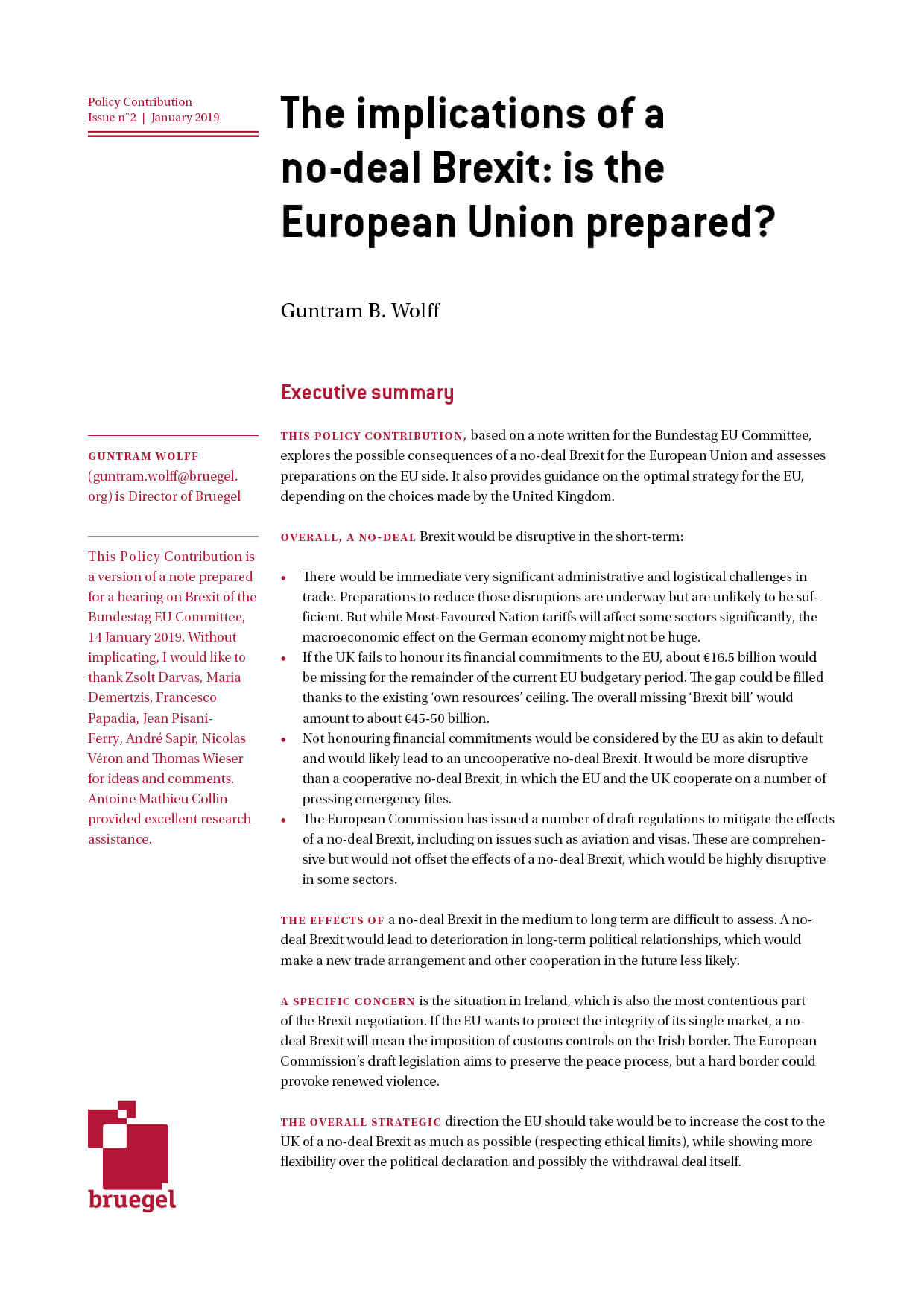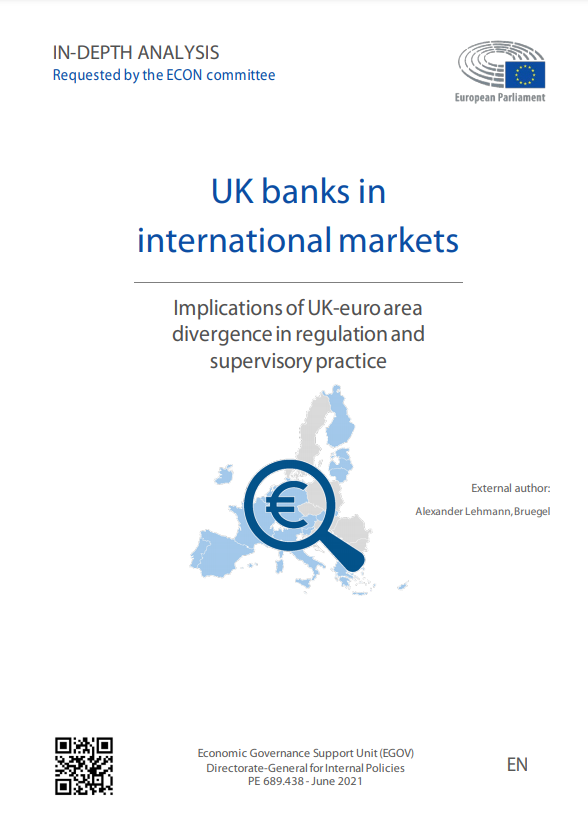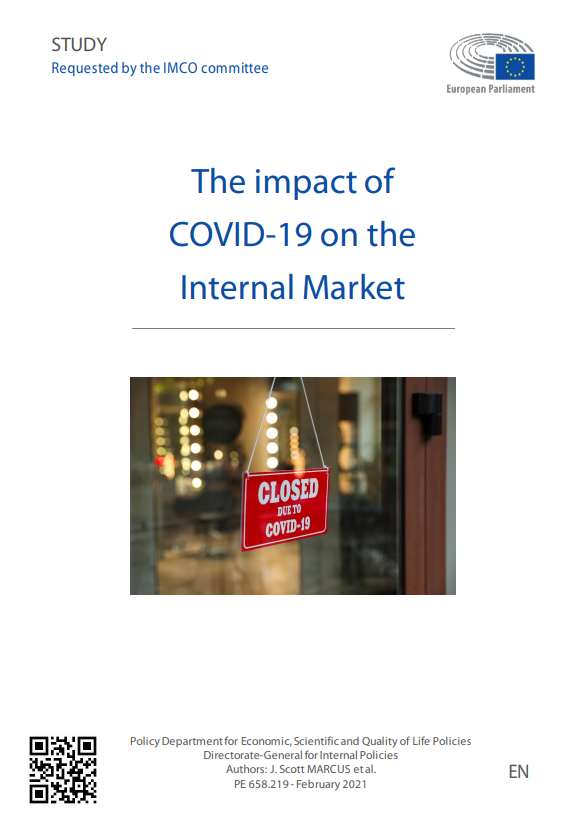Policy Contribution
The implications of no-deal Brexit: is the European Union prepared?
The author, based on a note written for the Bundestag EU Committee, is exploring the possible consequences of a no-deal Brexit for the EU, assessing preparations on the EU side and providing guidance on the optimal strategy for the EU, depending on the choices made by the United Kingdom.
This Policy Contribution, based on a note written for the Bundestag EU Committee, explores the possible consequences of a no-deal Brexit for the European Union and assesses preparations on the EU side. It also provides guidance on the optimal strategy for the EU, depending on the choices made by the United Kingdom.
Overall, a no-deal Brexit would be disruptive in the short-term:
- There would be immediate very significant administrative and logistical challenges in trade. Preparations to reduce those disruptions are underway but are unlikely to be sufficient. But while Most-Favoured Nation tariffs will affect some sectors significantly, the macroeconomic effect on the German economy might not be huge.
- If the UK fails to honour its financial commitments to the EU, about €16.5 billion would be missing for the remainder of the current EU budgetary period. The gap could be filled thanks to the existing ‘own resources’ ceiling. The overall missing ‘Brexit bill’ would amount to about €45-50 billion.
- Not honouring financial commitments would be considered by the EU as akin to default and would likely lead to an uncooperative no-deal Brexit. It would be more disruptive than a cooperative no-deal Brexit, in which the EU and the UK cooperate on a number of pressing emergency files.
- The European Commission has issued a number of draft regulations to mitigate the effects of a no-deal Brexit, including on issues such as aviation and visas. These are comprehensive but would not offset the effects of a no-deal Brexit, which would be highly disruptive in some sectors.
The effects of a no-deal Brexit in the medium to long term are difficult to assess. A no-deal Brexit would lead to deterioration in long-term political relationships, which would make a new trade arrangement and other cooperation in the future less likely.
A specific concern is the situation in Ireland, which is also the most contentious part of the Brexit negotiation. If the EU wants to protect the integrity of its single market, a no-deal Brexit will mean the imposition of customs controls on the Irish border. The European Commission’s draft legislation aims to preserve the peace process, but a hard border could provoke renewed violence.
The overall strategic direction the EU should take would be to increase the cost to the UK of a no-deal Brexit as much as possible (respecting ethical limits), while showing more flexibility over the political declaration and possibly the withdrawal deal itself.















